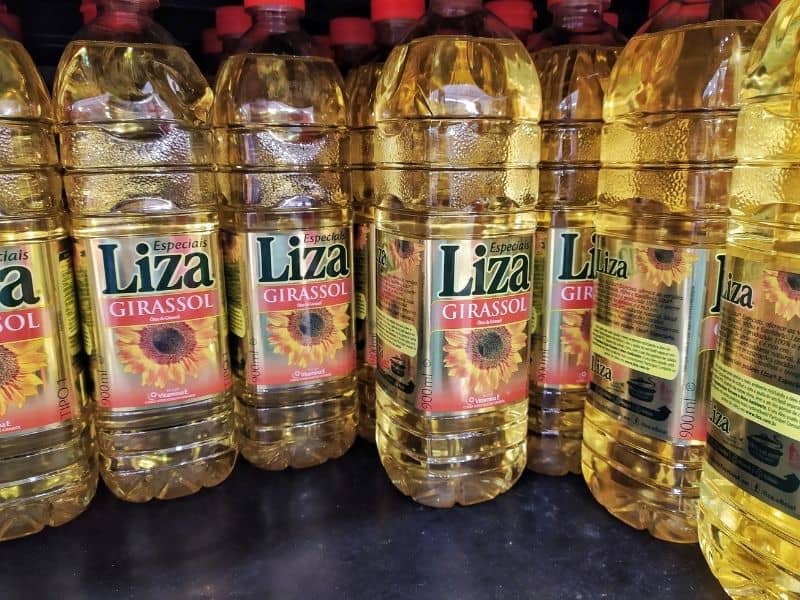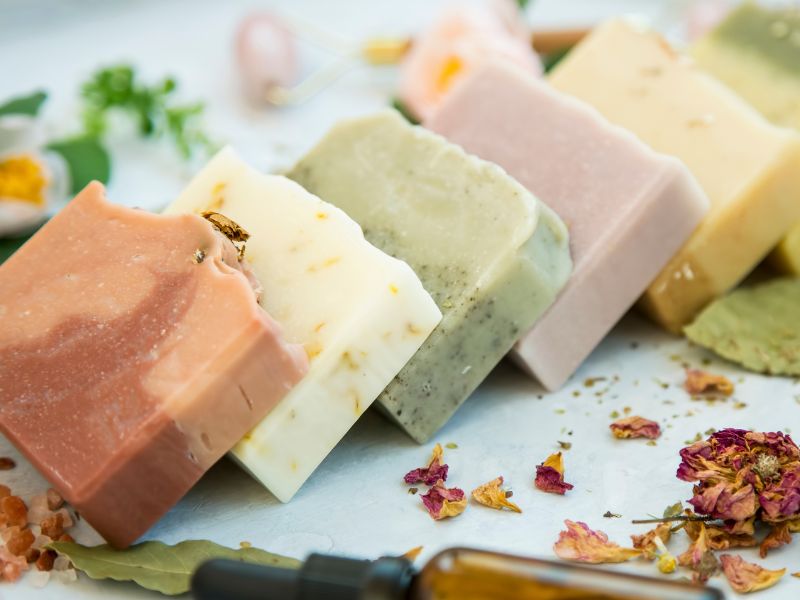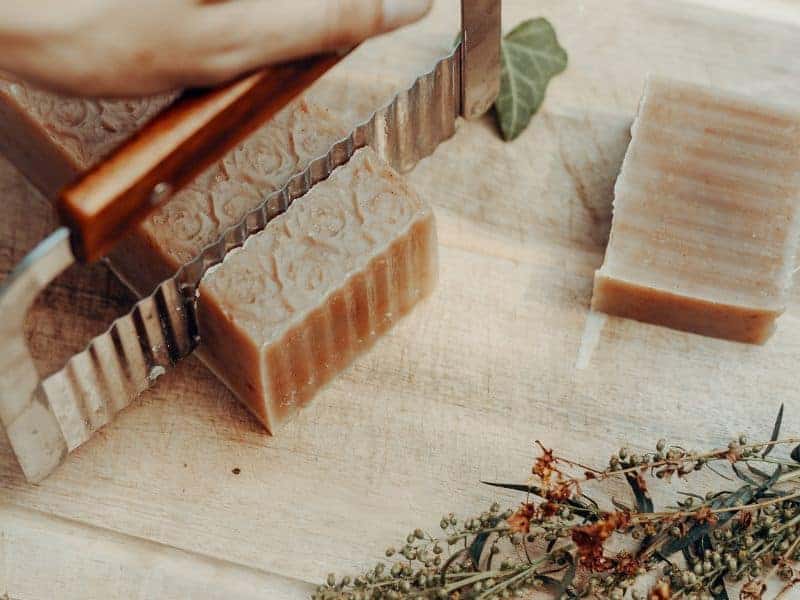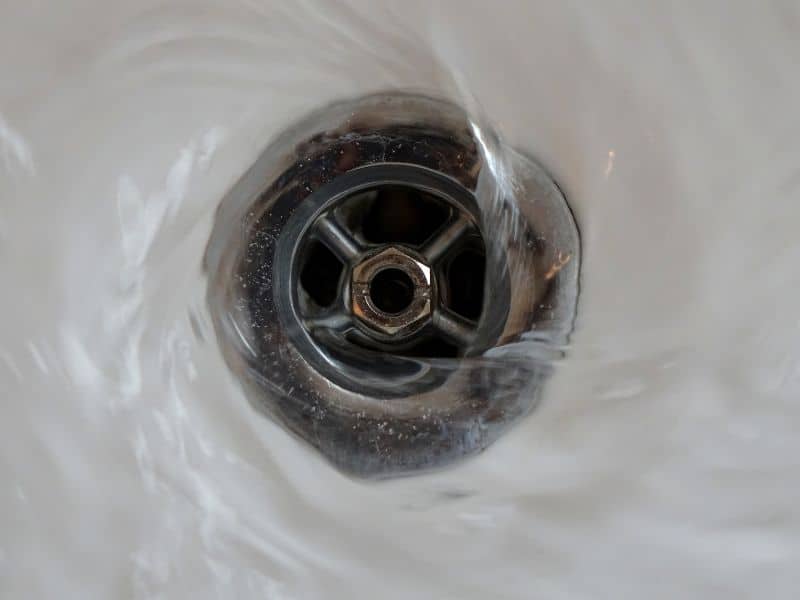A variety of oils can be used for making handmade soap. Often you will blend multiple oils when making soap. However, is sunflower oil good for soap making?
Sunflower oil is good for making soap. Sunflower oil is known to add desirable characteristics to a soap such as creamy lather, silky feel, and conditioning properties. In addition, sunflower oil has vitamin E and is good for your skin.
One downside to sunflower oil is that it can be expensive. If you are looking to save money, you may want to consider using a different oil in your soap recipe. However, sunflower oil will give your soap a luxurious feel and high conditioning properties.
Let’s take a closer look at sunflower oil for handmade soaps.
Sunflower Oil Benefits For Soap Making
As mentioned above, sunflower oil is many benefits for making handmade soaps. Let’s take a look at some of the additional benefits of sunflower oil.
- Sunflower oil is a good source of vitamin E, which helps to protect the skin against sun damage.
- Sunflower oil contains linoleic acid, an essential fatty acid that is beneficial for the skin.
- Sunflower oil is non-comedogenic, meaning it does not clog pores.
- Sunflower oil is high in oleic acid, which helps to moisturize the skin.
- Sunflower oil is a natural antioxidant.
When it comes to sunflower oil for soap making, there are many reasons to use it! It has luxurious characteristics, is good for your skin, and is high in beneficial fatty acids. If you are looking for a soap that will leave your skin feeling soft and conditioned, sunflower oil is a great choice!
Pros And Cons Of Sunflower Oil Soap Making
Like any other oil, sunflower oil has both pros and cons when it comes to soap making. Let’s take a look at the pros and cons of sunflower oil soap making.
Pros of Sunflower Oil For Soap Making
- Sunflower oil is known for its creamy lather.
- Sunflower oil leaves the skin feeling soft and conditioned.
- Sunflower oil is high in beneficial fatty acids.
- Sunflower oil is a natural antioxidant.
Cons of Sunflower Oil For Soap Making
- Sunflower oil can be expensive.
- Sunflower oil may not be suitable for all skin types.
- Sunflower oil is a heavy oil, which means it can slow down the curing process of your soap.
Overall, the pros can out weight the cons. If you are trying to create a high-end handmade soap then sunflower oil is a great choice. It has many benefits for the skin, it produces a creamy lather, and it is high in beneficial fatty acids.
Sunflower Oil Soap Making Costs
When it comes to sunflower oil for soap making, the cost can be a bit higher than some of the other oils available. Sunflower oil is often more expensive than other vegetable oils. However, the luxurious feel and high conditioning properties of sunflower oil may be worth the extra cost.
Affordable Alternatives To Sunflower Oil
If the cost of sunflower oil is a concern, there are a few affordable alternatives that you can use in your soap making recipes. Some affordable oils to consider include:
- olive oil
- coconut oil
- rice bran oil
- castor oil
Each of these oils has its own unique set of benefits for the skin. Experiment with different combinations to find the perfect recipe for your needs!
Tips For Making Soap With Sunflower Oil
If you are looking to add sunflower oil to your soap making, here are a few tips to help you get started.
Use sunflower oil as one of the oils in your recipe. Sunflower oil can be used as a primary oil, or it can be used as a secondary oil.
Be sure to use a properly balanced recipe. If you add too much sunflower oil, your soap may not be cured correctly.
Add sunflower oil at the beginning of the process. This will help to ensure that it is fully saponified.
Use high-quality sunflower oil. Not all sunflower oils are created equal. Choose an oil that is cold-pressed and has not been hydrogenated.
When adding sunflower oil to your soap making, be sure to follow these tips for the best results. Sunflower oil can add some great benefits to your soap, so don’t miss out on this valuable ingredient!
Types of Sunflower Oil for Soap Making
There are different types of sunflower oil that you can use for making soap. Two common types are refined sunflower oil and high oleic sunflower oil.
Refined Sunflower Oil
This kind of sunflower oil goes through a process to remove impurities and make it more stable for soap making. It’s a good choice because it’s pure and reliable. Refined sunflower oil is light in color and doesn’t have a strong smell, so it can work well in many soap recipes.
High Oleic Sunflower Oil
Another type of sunflower oil is high oleic sunflower oil. It has more oleic acid, which is a type of fatty acid. This makes the oil more stable and less likely to spoil. High oleic sunflower oil also adds extra moisture to the soap, which can be helpful for people with dry or sensitive skin.
Both refined sunflower oil and high oleic sunflower oil have their own qualities, and you can choose the one that suits your soap-making needs.
Tips for Finding and Choosing Sunflower Oil
When you’re looking for sunflower oil to use in soap making, here are some tips to help you:
Look for Cold-Pressed Sunflower Oil
Cold-pressed sunflower oil is a good choice because it keeps more of the natural nutrients intact. This means it can be better for making soap. So, try to find sunflower oil that is labeled as “cold-pressed.”
Consider Organic Sunflower Oil
If you want a more natural option, go for organic sunflower oil. Organic means it’s grown without pesticides or other chemicals. Using organic oil can be a healthier choice for your soap making.
When following these tips, you can find the right sunflower oil for your soap making project. Cold-pressed and organic options can give you better quality oil to make your soaps even more special.
Sunflower Soap Molds
If you are making soap with sunflower oil then you should consider taking your handmade soap to the next level by using sunflower soap molds.
You can use a variety of molds to do this, even ones intended for other purposes. Here are a few of the options we found on Amazon!


You can get creative by choosing one of these molds to maintain the sunflower theme.
Frequently Asked Questions
Sunflower oil is a great choice for soap making because it is high in beneficial fatty acids and has a creamy lather. It can be expensive, and may not be suitable for all skin types, but the pros can outweigh the cons.
Sunflower oil has many benefits for the skin, including leaving it feeling soft and conditioned. It also produces a creamy lather, and is a natural antioxidant.
You can use sunflower oil as a primary oil, or as a secondary oil. It is best added at the beginning of the process to ensure it is fully saponified. You can also use high-quality sunflower oil for the best results.
There are a variety of sunflower soap molds available on Amazon. You can choose one that is specific to your needs, or get creative and use a mold that is not intended for soap making.
Conclusion
Sunflower oil is one of the most popular vegetable oils in the world and you will find it in many soap recipes. It is high in beneficial fatty acids, which makes it great for soap making.
Sunflower oil can be used as a primary or secondary oil, and it produces a creamy lather. It is also a natural antioxidant. Sunflower oil is a great addition to soap making because of its many benefits for the skin.
Be sure to follow these tips when adding sunflower oil to your next batch of soap!






